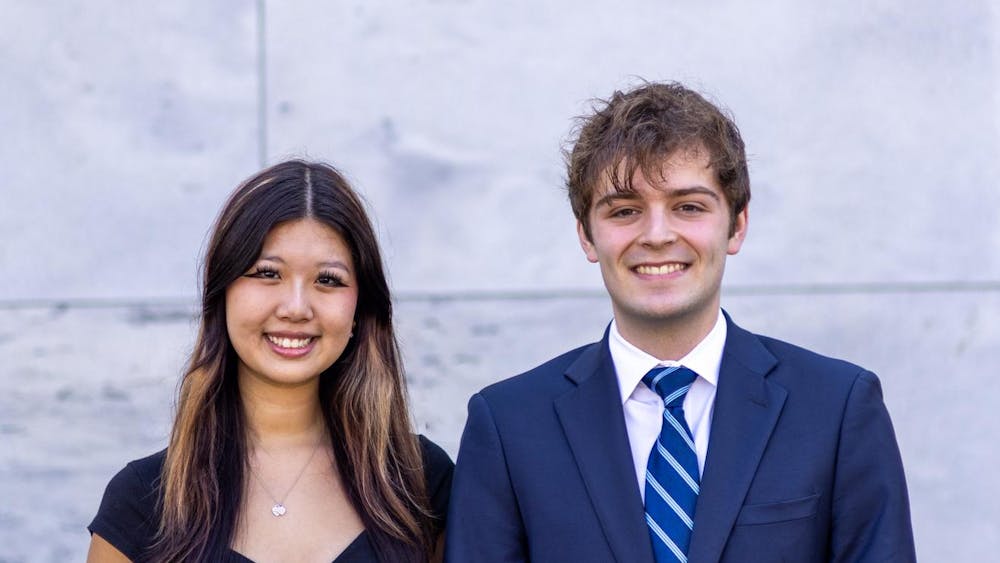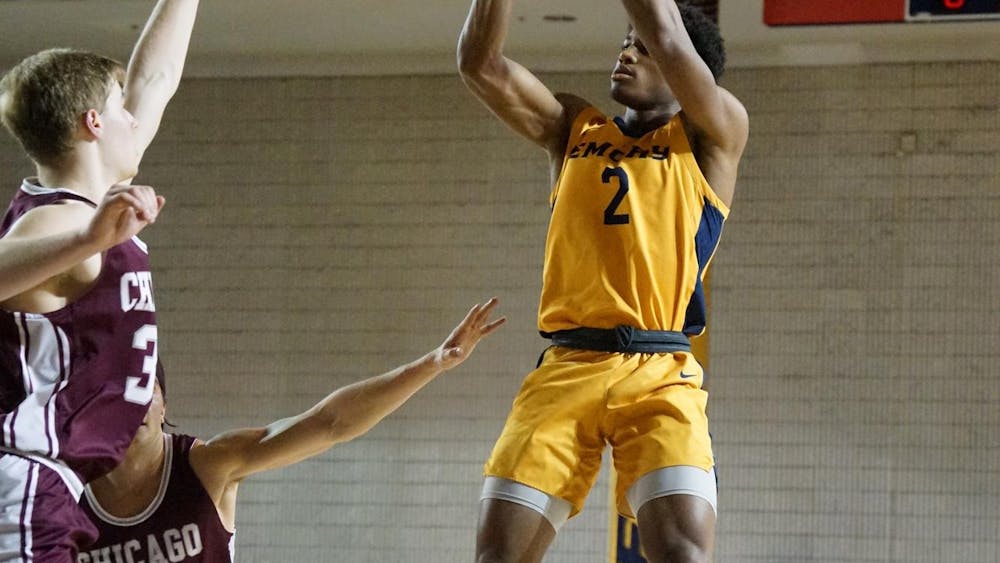In 2013, the U.S. Department of Education launched an investigation into 55 universities for failing to adhere to Title IX, a federal law which protects people from sex discrimination in educational programs. Although the investigation was a compliance review and did not find fault with the University, Emory was one of those institutions. During the investigation, which lasted about from two years, Emory students reported 191 incidents of sexual harassment, including 62 rapes. As Emory’s 2020 Annual Security and Annual Fire Safety Report, also known as its Clery report, reveals, the University still has a long way to go to reduce sexual violence.
The Clery report, which the Emory administration released on Dec. 21, demonstrates that the number of reported rapes on Emory’s Atlanta campus increased from 12 cases in 2018 to 14 in 2019. On the Oxford campus, reported rapes decreased from three in 2018 to one in 2019. But as a voluntary survey revealed in 2018, the true number of sexual assaults on campus is higher by orders of magnitude, suggesting that Emory students vastly underreport sexual violence to campus authorities. The University has neglected and discouraged survivors of sexual assault, and building trust with them should begin with addressing the inadequacy of and inequity between survivor support at the Atlanta and Oxford campuses.
To skim the report and, on the basis of sexual violence’s decline in recent years, conclude that fewer Emory students have been victims, is as easy as it is incorrect. The most recent survey data available indicates that about 15% of female Atlanta undergraduates and 15.5% of their female peers at Oxford experienced sexual assault during the 2017-2018 academic year. The Oxford campus hosts about 1,000 students each year, and the Atlanta campus enrolls roughly six times that figure, meaning that dozens, if not hundreds, of assaults went unreported. If we include male and non-binary students, large proportions of whom identify as disabled, Hispanic and non-heterosexual, the number is likely even higher.
National data supports this as well: one multiyear Justice Department study found at least 80% of female student victims aged 18-24 don’t report their assaults. The fact that victims who don’t report can’t get the physical or psychological care they need makes this one of the greatest public health crises facing the Emory community, but it has gone unheeded for decades.
Sexual assault at Emory dates back to the University’s founding in 1836. James Osgood Andrew, one of Emory’s founders, likely raped a formerly enslaved Black woman whom he claimed as his property even after slavery was abolished. Her name was Catherine “Miss Kitty” Boyd, and the cottage she inhabited still stands next to the Oxford campus. Although the cottage is now a museum intended to educate Oxford students about Emory’s past, the only mention of Boyd is on a well-concealed placard close to her cottage. The sign omits information about the abuse, but her story is well known among the Covington community nonetheless. As the most recent Clery report suggests, sexual assault is similarly dealt with today on both campuses: regardless of its horrific prevalence among the student body, very few instances ever see action from authorities. What began with Kitty in the 19th century continues through the 21st.
Much of the underreporting problem likely stems from students’ distrust of the University. On a national level, 80% of female student survivors do not report sexual violence to law enforcement. One-fifth of female student survivors who do not report their assaults do so because they fear retaliation, while 9% feel that law enforcement would refuse to help. But Emory students seem to think the problem extends beyond law enforcement to administrators: in 2018, a quarter of undergraduate women at both Emory campuses felt that sexual violence was not properly addressed at the University. To make matters worse, Emory’s marginalized communities experience sexual assault at horrific rates: 49% of Atlanta gay undergraduate men and 63% of bisexual Oxford undergraduate women have experienced assault at some point in their lives. The University’s failure to provide adequate reporting and care resources, then, condemns marginalized communities to not only suffer but suffer disproportionately.
Changes in national policies have complicated Emory’s handling of sexual misconduct. Following former U.S. Secretary of Education Betsy DeVos’ revisions to federal Title IX guidelines, Emory revised its own Title IX policy. DeVos’ changes narrowed the definition of sexual harassment and required survivors to be cross-examined by a legal representative during hearings. Cross-examinations, which can last for hours on end, force victims to relive the excruciating memories of their assaults; they are cruel and often unnecessary. While Emory does not require them in sexual assault hearings, they are nevertheless permitted in all cases. Both that change and the redefining of sexual misconduct disadvantage survivors and have likely already discouraged many from reporting.
To encourage students to report sexual violence, Emory must expand equity of and access to sexual assault reporting resources and care. According to Emory University Student Health Services (EUSHS) Director Dr. Sharon Rabinovitz, EUSHS has just one sexual assault nurse examiner (SANE) on staff and, as of 2018, did not offer rape kits. Students in need of a sexual assault evidentiary exam can and should seek one from Emory’s SANE, but expanding the SANE program, offering rape kits and publicizing both would mean that victims could more easily receive the care and resources they need without leaving campus. Schools such as the University of Michigan and Colgate University (N.Y.) have implemented robust SANE programs, and University of Michigan physician Susan Ernst confirmed that students reported seeking on-campus care instead of off-campus hospitals due to comfortability and convenience. There is no reason why Emory should not do the same. Supporting suvivors of sexual assault begins with providing them with medical care in the most accessible, equitable and convenient manner.
Emory should also hire sexual assault trauma specialists for the Atlanta and Oxford campuses’ Counseling and Psychological Services (CAPS) programs to further ensure that victims have the necessary resources at their disposal. During an interview, Sexual Assault Peer Advocates (SAPA) representative Shreya Chodisetty (21C) pointed to CAPS and the Survivor Anthology as resources to support assault survivors, but specialized care is necessary to support trauma victims. According to CAPS Director Dr. Wanda Collins, CAPS has no sexual assault trauma specialists on staff. While all of its clinicians are generalists trained to deal with sexual assault, an individual or team designated to deal with the issue could focus on it more exclusively and build more expertise over time. Most importantly, students in need may be more likely to seek care if they could readily find one or more specialists whose sole job is to help them.
Chodisetty acknowledged that many people are not mandatory reporters for sexual assault, leading to underreporting of sexual assault cases. That inadequacy and recent changes to Title IX regulations to require cross-examining victims who report assault shed light on the absolute necessity for Emory to expand their services. Simplification of the “convoluted” process of Title IX is also a key necessary resource that Emory should provide students so victims know each and every step of the process. In lieu of an environment where victims now make the decision to report, it is of utmost importance that Emory fill the gap in survivor care to support students and decrease underreporting.
Emory’s progress toward a safe environment for survivors has been incremental at best. Cassie Eng, a former Oxford student who transferred to another college after her first year, shared her story to shed light on the care gap between the two campuses and Emory’s lack of cooperation with survivors.
“There had been red flags early on. He was a maintenance staff in my hall, Murdy, and one day he followed me up to my room and raped me” Eng said. At the time, she did not come forward because “there [were] a lot sexual assault allegations at the campus,” and she felt the University’s administrators and the main campus Title IX office were not responding to her situation adaequately. Eng believes one of the main problems for survivors at Oxford is that complaints must go through the main campus as well. In her case, she said “Emory was really reluctant” to further help her, and she was “dissuaded by both the Oxford people and the Emory [Title IX] coordinator” from mentioning the incident to the police.
Eng’s story exemplifies Emory’s ongoing struggle to overcome sexual violence. Eng acknowledges one of her “biggest frustrations” was that Emory coordinators held too much power over her case and others like it at Oxford. The whole process felt “impersonal,” Eng recounted. “They barely listened to what I had to say.” Moving forward, she believes that “these matters should be handled by people on the [Oxford] campus.” Emory must recognize the inequity between Emory’s main campus and the Oxford campus and expand the current reporting and care resources available for survivors.
As years of data suggest, Emory has failed to create an environment in which students feel safe to report sexual violence. Despite recent initiatives intended to address sexual violence, such as crisis hotlines and other resources for survivors, the University has not done enough. Emory’s long, appalling history of sexual violence will remain the status quo unless administrators more actively challenge a campus culture that has silenced survivors for nearly two centuries.
The above editorial represents the majority opinion of the Wheel’s Editorial Board. The Editorial Board is composed of Sahar Al-Gazzali, Brammhi Balarajan, Viviana Barreto, Rachel Broun, Jake Busch, Sara Khan, Demetrios Mammas, Meredith McKelvey, Sara Perez, Ben Thomas, Leah Woldai and Lynnea Zhang.
Correction (2/5/21 at 12:45 p.m.): A previous version of this article quoted a Sexual Assault Peer Advocates representative saying that Emory is currently “decreasing the number of mandatory reporters to leave it up to the survivor.” In fact, Emory has not decreased the number of mandatory reporters.
Update (2/5/21 at 12:45 p.m.): This article has been updated to include the fact that the 2013 Education Department Title IX investigation was a compliance review and made no determination of noncompliance on Emory’s part.









